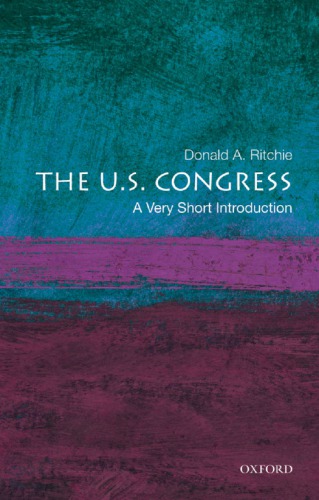

Most ebook files are in PDF format, so you can easily read them using various software such as Foxit Reader or directly on the Google Chrome browser.
Some ebook files are released by publishers in other formats such as .awz, .mobi, .epub, .fb2, etc. You may need to install specific software to read these formats on mobile/PC, such as Calibre.
Please read the tutorial at this link: https://ebookbell.com/faq
We offer FREE conversion to the popular formats you request; however, this may take some time. Therefore, right after payment, please email us, and we will try to provide the service as quickly as possible.
For some exceptional file formats or broken links (if any), please refrain from opening any disputes. Instead, email us first, and we will try to assist within a maximum of 6 hours.
EbookBell Team

5.0
60 reviews"Congress is the most open branch of the federal government, and its members labor to provide constituent services and court the news media, but because they speak with many voices they have long operated at a disadvantage against the singular image of the president. This very short introduction to Congress offers a concise explanation of how the Congress operates and provides historical context for its evolution. As a national forum, congressional debates and compromises have sought not only to enact laws but to forge national consensus behind them. Congress writes all federal laws, appropriates all federal funds, and checks and balances the executive and judicial branches. Its constitutional powers, structures, and procedures have remained remarkably consistent for more than two centuries. Yet Congress has often been criticized for obstructing or not standing up to the presidency, and for neglecting or delaying pressing national needs. This short introduction highlights the rules, precedents, and practices of the Senate and House of Representatives. It offers glimpses into their committees and floor proceedings to reveal the complex processes in which they enact legislation. It considers how members are elected and reelected, and the role of campaigns, lobbying, staff, and the media in legislative business. It also examines the changing demography of Congress, with the election of more women and racial and ethnic minorities, and their impact on the legislative process, in an era when a woman serves as Speaker of the House and African Americans chair key committees"--